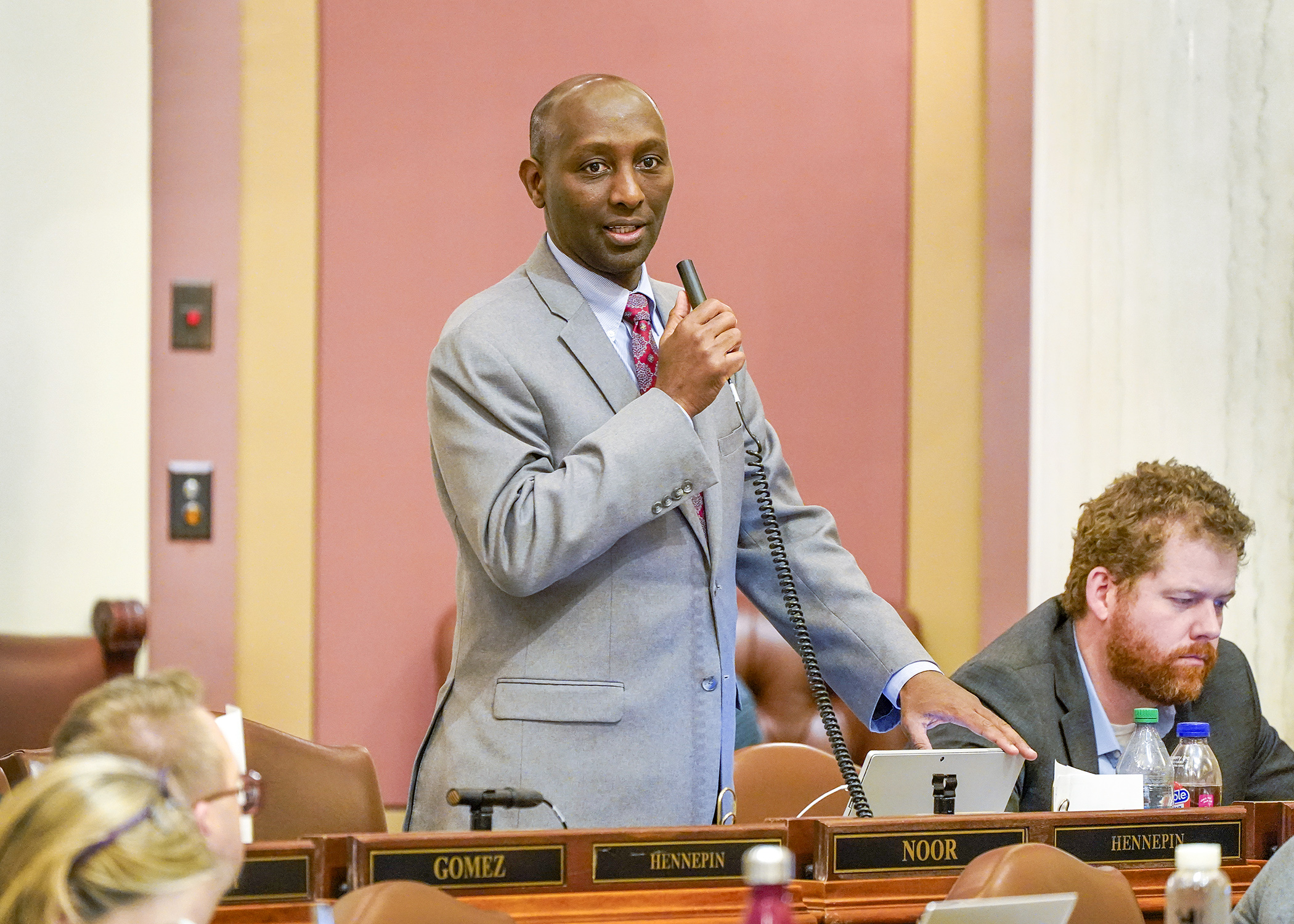House passes $14 billion human services package that includes contentious nursing home loan program

Every day more and more employees join the “Great Resignation,” a mass exodus of workers from their jobs, especially burnt-out heath care staff.
From nursing homes to residential care facilities, the human services finance bill seeks to aid the hiring and retention difficulties plaguing care providers across the state.
Sponsored by Rep. Mohamud Noor (DFL-Mpls) and Sen. John Hoffman (DFL-Champlin), HF2847/SF2934* would appropriate $14.11 billion — $1.35 billion in new spending — to the Department of Human Services during the 2024-25 biennium.
The House approved the conference committee report before repassing the bill 71-61 Friday and sending it to the governor. The Senate passed the bill 35-32 earlier in the day.
“We’re addressing the needs of our most vulnerable people out here in our state in ways we’ve never been able to do before,” said Rep. Peter Fischer (DFL-Maplewood). “That’s why this is such an expensive bill because we’re getting people up to the point where they’re being paid a living wage.”
[MORE: Download the spreadsheet; Read about the conference committee]
“Our budget makes great strides to not only care for our most vulnerable Minnesotans, but also the workers who care for them in turn,” Noor said in a statement. “Effectively caring for those who need it is a moral test that every budget should pass, and ours does so for our nursing homes, caregivers, and those in the grips of the opioid epidemic.”
Nursing homes
DFLers state nursing homes will receive the largest increase in state history. After automatic reimbursement rate adjustments, they expect $847 million to reach the facilities over the next four years.
“The Human Services Budget makes historic investments in nursing homes, long-term care, and in Minnesota’s care workforce. Our budget makes significant investments in nursing homes — $847 million more than the last two-year budget,” House Speaker Melissa Hortman (DFL-Brooklyn Park) said in a statement. “The people doing some of the most important work in our state to care for seniors and people with disabilities are paid the least. A system that doesn’t support the workers who care for our most vulnerable is not sustainable. Our budget takes much-needed steps to invest in this workforce.”
However, the lack of direct nursing home funding in the proposal riled Republicans.
“I myself have lost two nursing homes in Polk County in the last month,” said Rep. Debra Kiel (R-Crookston).
While a onetime $100 million appropriation would establish a nursing facility loan program for financially distressed nursing facilities, conservative lawmakers want more, and they’d prefer a forgivable loan or grant.
“These nursing homes are in tight financial straits to start with. Many of them are leveraged to the brink as it stands,” said Rep. Walter Hudson (R-Albertville). “And the idea that they’re going to be able to take on additional debt when they’re already on the brink of financial collapse is, well frankly, laughable.”
Other proposed new nursing home spending includes $22.84 million for a 25% rate increase for home care nursing, $1.91 million for critical access nursing facilities, and $680,000 for a nursing facilities rate study.
Financial changes
Additional new spending called for consists of:
- $122.09 million for elderly waiver increases and consumer-directed community supports parity;
- $90 million for long-term workforce incentive grants (including nursing);
- $86.66 million for modifying the inflation adjustments to the disability waiver system;
- $46.59 million for disability and elderly waiver homemaker rate alignment;
- $18.16 million for safe recovery sites; and
- $12.1 million for HIV/AIDS support services.
Numerous rate increases are included, such as home care services, home and community-based services, and certain disability waiver services.
Noor said that, effective Jan. 1, 2024, intermediate care facilities for persons with developmental disabilities would see a daily rate increase of $40, as well as minimum daily operating payment rates set at $275 for class A facilities and $316 for class B facilities.
Related Articles
Search Session Daily
Advanced Search OptionsPriority Dailies
Legislative leaders set 2026 committee deadlines
By Lisa Kaczke Legislative leaders on Tuesday officially set the timeline for getting bills through the committee process during the upcoming 2026 session.
Here are the three deadlines for...
Legislative leaders on Tuesday officially set the timeline for getting bills through the committee process during the upcoming 2026 session.
Here are the three deadlines for...
Latest budget forecast projects nearly $2.5 billion surplus, but red ink down the road
By Mike Cook Three weeks before Christmas, state budget officials provided some merriment to Minnesotans. However, Grinch-like transformations lurk.
Released Thursday, the November ...
Three weeks before Christmas, state budget officials provided some merriment to Minnesotans. However, Grinch-like transformations lurk.
Released Thursday, the November ...